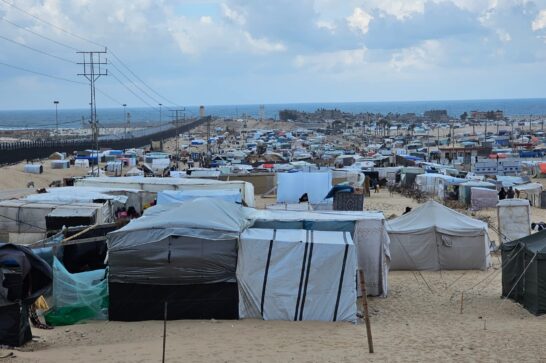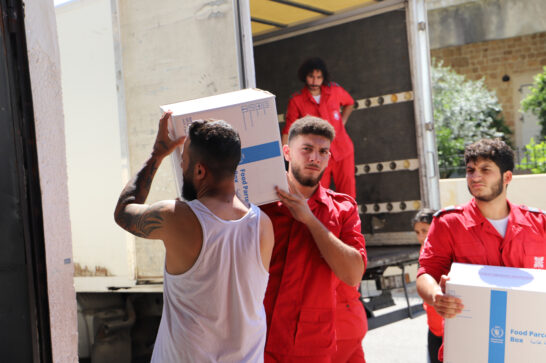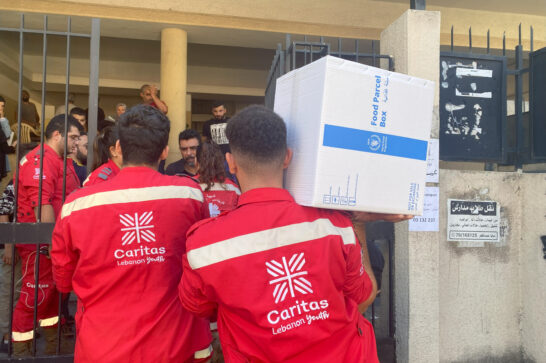Cordaid’s emergency aid expert Inge Leuverink travelled to Yemen in October to meet local partner organisations and provide training. She also spoke to many Yemenis who often had harrowing stories to share. In this blog, Inge tells all about her experiences.
After quite a long wait for official approval, I finally arrived in Yemen, a country that has been suffering from a civil war since 2015. For some time now, Yemen has been among the top five countries with the largest humanitarian crisis. Together with local partners, Cordaid works on health care and emergency aid.
A visit to a war zone always goes accompanied by a tense feeling, but the timing of this trip turned out to be especially unfavourable. The truce between the Houthi movement, which controls the north, and the internationally recognised government in the south has just ended. Fortunately, the two sides continue their peace talks and the situation remains relatively calm.
Ukraine
We have been working in Yemen since 2019, and we have now been able to open an office in the southern city of Aden, where I fly in with UNHAS, the humanitarian airline of the United Nations.
To my surprise, parts of Aden resemble the images we know so well from Ukraine, which I visited a few months before. Heavy fights have taken place throughout the city and not much has been rebuilt.
It used to be a progressive city, before the war. Now, the women I meet tell me, the ongoing violence has fuelled conservatism. Many women cover their faces when they go out on the streets, whereas before they would not do this. The mosque preaches several hours a day.
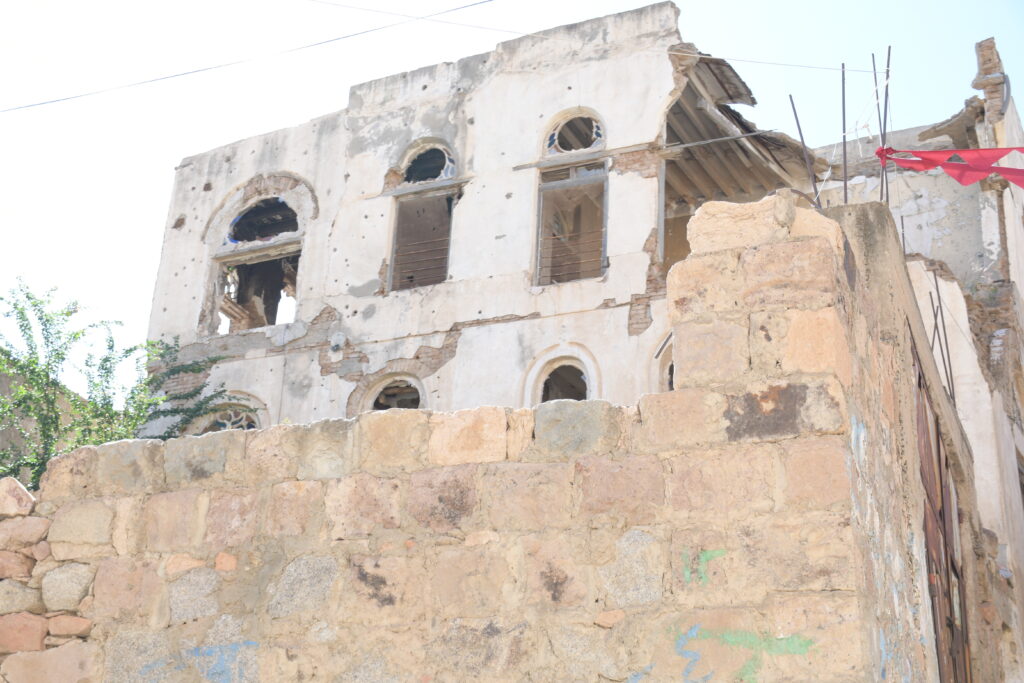
More than 23 million people in need of support
Yemen was already one of the poorest countries in the Middle East and the conflict has led to an unprecedented humanitarian crisis: more than 23 million people are in need of support, almost three-quarters of the population.
At the same time, from the conversations I have had in Aden, it has become clear that the available funds have dropped significantly. The reason for this seems to be that donors have started to spend more on support in other international crises, such as the corona pandemic or the war in Ukraine.
Different ways of working
The staff of both international and local organisations tell me that their programmes could not continue and that they had to let people go. They push for different ways of working, more focused on livelihoods, offering long-term solutions in addition to emergency aid, which will remain crucial for the time being. In professional lingo, this is called the triple nexus: an operational method in which emergency aid, development and peacebuilding go hand in hand.
“Food aid has declined and instead of a monthly ration, people can now only count on support every two or three months.”
The organisations stress that their work will become almost impossible if the fighting breaks out again. They are anxiously following the negotiations.
After the instructive meetings in Aden, I travel with a group of local colleagues to Taiz, a city and region in the southwest of Yemen, right in the middle of a conflict zone. With local partner YWBOD (Youth Without Border Organisation for Development) we run a project there to financially support war victims.
Risky journey
The road to Taiz is not without danger. Due to the conflict, we cannot use the direct highway, so we take a detour through the mountains. The journey takes about six hours, double the time it would be under normal circumstances.
During the first leg of our trip, we drive through an area ruled by tribes. Car theft is rampant here, but vehicles containing a woman, who dresses according to the cultural rules, can usually pass safely. So here I am, in the backseat of the car, properly veiled.
Berlin
Taiz is reminiscent of Berlin before the wall fell. It is a divided city where the opposing parties rule their own side. The borders are scattered with mines and snipers on both sides keep an eye on the crossing. If you want to visit family on the other side of town, you will have to drive all the way around. This takes hours, whereas before you would get there in about fifteen minutes.
Yet there still is plenty of life in the streets. Traffic is chaotic and the markets are functioning well. This is valuable information for aid workers because we are increasingly handing out money instead of goods. But only when people can spend it on food and other necessities.
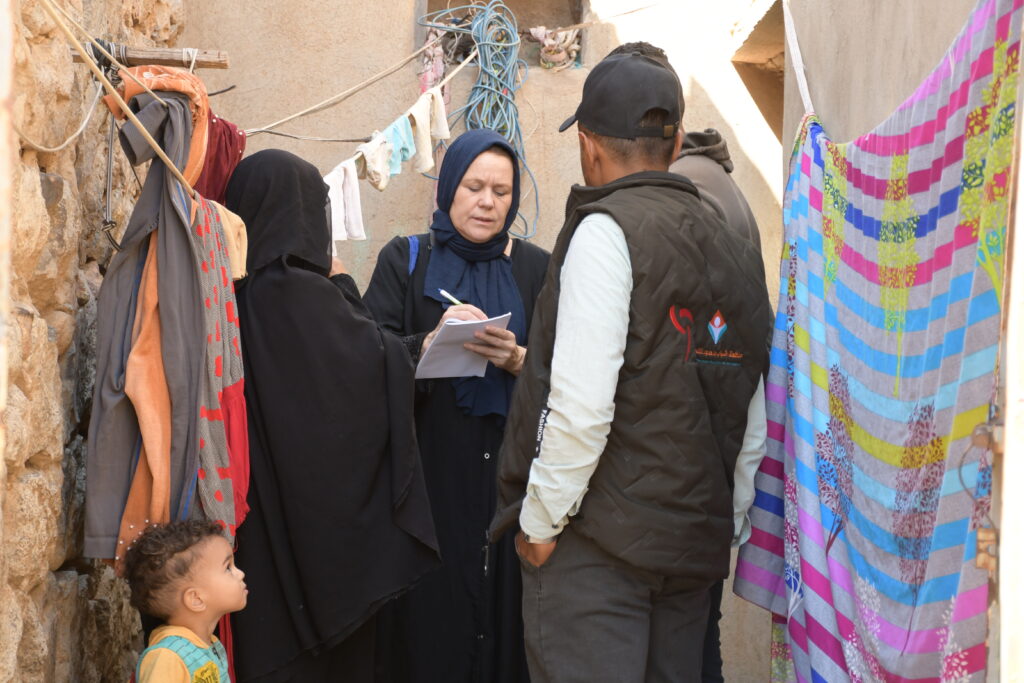
Survival mode
I meet many people who are just getting through the day in pure survival mode. Food aid has declined and instead of a monthly ration, people can now only count on support every two or three months. And the rations have become even smaller than before.
“It is both heartbreaking and impressive to hear people’s stories. All the things they come up with to survive.”
The economy is in a terrible state and there is hardly any work. For women, this is almost a certain impossibility, since working outside of home is often socially unaccepted for them.
How do you survive then? You work for meagre daily wages, sell everything you have, look for help from neighbours and relatives, put your children to work and if you cannot think of anything else…you start begging in the streets.
Heartbreaking
It is both heartbreaking and impressive to hear people’s stories. All the things they come up with to survive. It makes me realise how differently every person deals with a crisis. How different the needs can be for each family.
That is why cash support works so well. People can set their own priorities and purchase whatever they feel they need most. Of course, as with anything, there are also risks and challenges.
Such as inflation and fluctuations in exchange rates. Today you might be able to support ten people with a hundred dollars, a week later it might only be seven.
Who do you support?
Our local partner in Taiz identified another major issue: if more and more people need support and you have a limited budget, how do you make a selection? And how do you prevent conflicts from arising?
It is ringing non-stop. The callers all believe they fit the criteria. I feel great admiration for the young women at YWBOD who are answering the phone. Patiently they keep explaining, again and again, what they can do for them, and what not. Other staff and volunteers go into the neighbourhoods to look for people who need their support the most. There is a lot of pressure on them.
Keeping the spirits up
Back in Aden, safe and sound, I train Cordaid staff and partners from the Dutch Relief Alliance on how to effectively set up cash support programmes. We discuss the challenges and the participants share their experiences.
The Yemeni staff are doing everything they can to keep their spirits up. Most of them believe a truce will be reached. Let’s hope so. And, despite all the concerns we currently have in Europe, let’s not forget the people of Yemen. They desperately need our support to survive.

